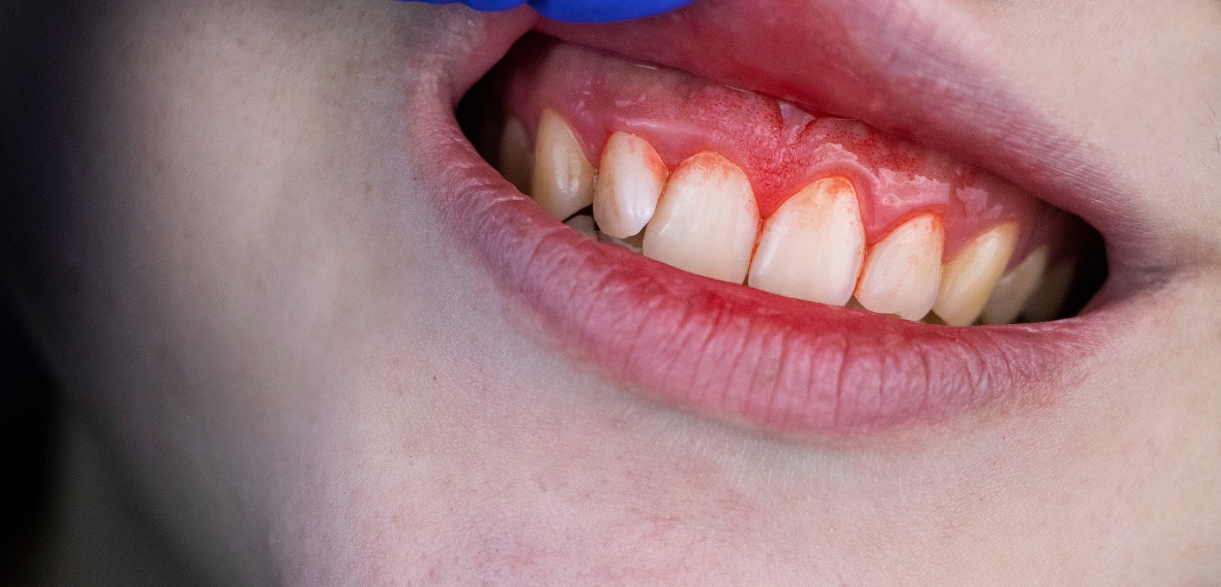
Periodontal disease is a widespread oral problem that affects millions of people worldwide. Do you know the primary cause of periodontal disease, also known as gum disease? It occurs primarily due to inefficient cleaning.
Are you still holding onto the misconception that relying solely on brushing, flossing, and rinsing at home is enough to maintain good oral hygiene? Visiting a dentist for professional cleanings and comprehensive oral exams is essential. Especially if you suffer from gum disease, professional periodontal cleaning is even more critical. If you don’t treat gum disease early, it can lead to bone damage, tooth loss, and serious health problems.
Let’s explore how deep cleaning works and how it can be an effective solution for treating gum disease.
Understanding Gum Disease
Development of plaque and tartar along the gumline is the leading cause of periodontal disease. It can quickly turn serious if you don’t address them promptly. How will you understand that you are suffering from this disease? Let us learn about the common symptoms. Red, swollen, and bleeding gums are common signs that should not be missed. Are you having a persistent bad taste? Gum recession and shifting of teeth can also indicate that you are suffering from gum disease. Periodontal cleaning is widely considered the first line of defence under such circumstances.
What Is Deep Cleaning Or Periodontal Cleaning?
Unlike regular teeth cleaning, which focuses on cleaning the tooth surfaces, periodontal cleaning is all about cleaning underneath the structures. There are mainly two steps involved in this process, which include scaling and root planning. Scaling is all about removing plaque and tartar buildup from the tooth surface and beneath the gumline. Root planning is a dental procedure used by dentists to smooth out the roots of the tooth, making it easier for the gums to reattach to the teeth. Multiple visits may be necessary, depending on the patient’s condition, and general anesthesia may be used.
How Deep Cleaning Treats Gum Disease?
Periodontal cleaning targets the root cause, eliminating plaque buildup and bacterial infections. Bleeding and inflammation automatically subsides when the irritants are removed from under the gums. Deep cleaning focuses on eliminating the bacteria; once it’s done, the gum tissues start to redevelop. It also helps prevent tooth loss by tightening the gums. Early intervention can help you eliminate the problem quickly and avoid the need for gum surgery. Do not wait for extreme scenarios and take quick action.
What Happens During The Procedure?
Are you scared about the treatment procedure? You won’t have to, as it is minimally invasive, and anesthetic medications are used. Just like any other treatment, it also starts with an initial consultation. Local anesthesia is only provided if the patient needs it. Scaling and root planing are the two essential parts of this treatment. Scaling includes removing the layers of plaque and tartar, while root planning involves smoothing the root surfaces. Antibacterial treatment is next, and you are done with the procedure. Professionals guide patients about post-cleaning instructions and follow-up appointments before they are free to go.
Maintaining Results After Deep Cleaning
It is not only about visiting a professional and receiving treatment; you need to focus on aftercare. Maintaining good oral hygiene can help prevent and reduce the likelihood of recurrence. Ensure to brush twice daily using a soft-bristled toothbrush and fluoride-based toothpaste. Floss daily to prevent food particles from getting stuck between your teeth. Additionally, dentistry professionals always advise using antibacterial mouthwashes. Regular dental visits are also crucial for preventing oral health issues.
Deep Cleaning Plays A Major Role
Are you suffering from gum disease? You shouldn’t have second thoughts about periodontal cleaning. Root planning and scaling are widely considered the first step to treat gum disease successfully. Early professional intervention is always key to ensuring positive outcomes. Never take a casual approach if you suffer from this particular disease; visit a dentist promptly. Once you receive treatment, never forget the importance of good aftercare to prevent recurrence.


